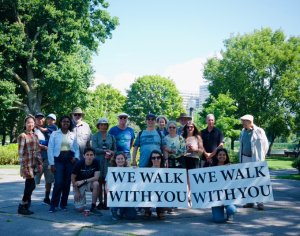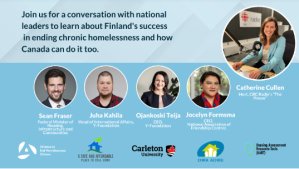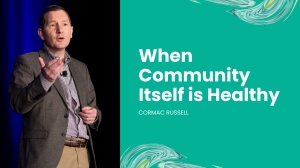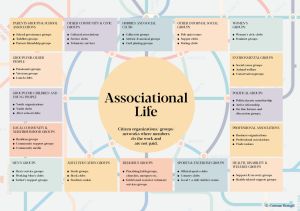… From Mad Pride to Participation Pride
In a broad range of mental health literatures, works on inclusion, diversity, and community engagement proliferate. Most champion inclusion, proposing that both mental health service users and practitioners benefit from it, and offer principles and best practices for how to include effectively. For service users, the supposed benefits of inclusion are usually positioned at the site of individual self-improvement, drawing on discourses of personal empowerment, resiliency, meaningful engagements, capacity building, and citizenship models (Nelson, Lord, & Ochocka, 2001; Rowe, 2015; Watts & Higgins, 2016). For service providers, inclusion is claimed to offer a broadening of perspective, and the opportunity to work, “co-produce,” and learn alongside, and not solely on, those
with diagnoses (Rees, Knight, & Wilkinson, 2007). This literature thus understands power to move largely in terms of local and interpersonal exchange, and rarely addresses how the role of inclusion works to sustain systemic and structural systems of power. Instead, it promotes a narrow definition of efficacy: whether the inclusion of service users improves the quality, relevance, and care of mental health research, education, and service systems (Morgan & Jones, 2009; Repper & Carter, 2011; Chinman, Weingarten, Stayner, & Davidson, 2001; Staniszewska, 2009). Inclusion, in these quantitative analyses, is justified, not in terms of an ethics of collaboration, but rather in terms of its success as a technique for client/patient care.
This special issue departs from such biomedical logics to align with the critical perspectives on inclusion which have been emerging in the fields of critical race/ethnic studies (Abu-Laban & Gabriel, 2002; Ahmed, 2012: Hasan, 2011), international development (Cooke & Kothari, 2001), queer (Puar, 2007; Spade, 2015) and critical Indigenous studies (Chrisjohn, Young, & Maraun, 1997; Million, 2013). These scholars show how equality frameworks of inclusion not only fail to address systemic violence, but work to reinforce systems of inequities in new ways. Disability Studies scholars Mitchell & Snyder (2015) use the term ‘ablenationalism’ to describe the process by which normative Western citizenship
ideals are inscribed on disabled people as desired positive outcomes, equating inclusion within existing economies (especially into the market economy) as equivalent to success. What this does is rescript resistance and disability justice critiques of prevailing ruling relations (Smith, 1987; PiepznaSamarasinha, 2018) into ‘diversity and difference’ practices that attempt to neutralize oppositional struggles through measures of inclusion and incorporation. In much the same way, the scholarship presented here demonstrates how, by commodifying difference, practices of inclusion and diversity in mental health systems re/produce participation as a new form of subjugation.
As editors, however, we would be remiss if we did not acknowledge the ways in which service users’ activism and knowledge have contributed to and reformed psychiatric institutions and systems. It is only because of this activism (Finkler, 1997) that institutional spaces have shifted away from custodial and towards democratic “power sharing” models (Church, 1992). Organizations and service providers may even be individually well-intentioned in their attempts to draw on service users’ experiential knowledge. However, what has become evident over time is that this power-sharing is conditional: in the name of ‘collaborative consensus’ or ‘co-production’, systems absorb and implement ideas that align with dominant interests but disregard those systemic critiques and ‘unreasonable’ demands that create discomfort.
Take, for example, recent moves to democratize health care service delivery: everything from designing e-health patient communication technologies to high level assessment surveys. Service users are recruited to participate and asked to consent to have feedback deposited into large data repositories with a promise that aggregate data will facilitate better inter-agency practices via common data standards. Systems such as this purport to give power, control, and responsibility to service users. Many service users eagerly embrace these measures without questioning what these research tools do with the data. Questions of privacy, confidentiality, informed consent, and accountability are
rarely addressed. Trapped in this involuntary surveillance, we endlessly “engage” in focus groups and consultations, provide our knowledge, feedback, and ‘lived experience,’ with the hope of improvement. How this knowledge is then interpreted and used to promote health priorities and systems change is often beyond our control. Thus, the outcomes of the very things we argue for can end up working to our disadvantage.
Much the same goes for the practice of employment of service users as peer workers or
community stakeholders. Because we are excluded from other paid work positions many of us flock to service user positions. However, even those service users who are paid for their participation are most often paid through honoraria or on limited-term or part-time contracts. Agencies are free to selectively include, or get rid of, participants as they choose. One or two individuals with “lived experience” (who may or not be disclosing identities at the table) are sufficient to meet engagement requirements. In response to the demand that representatives should communicate with and be accountable to the communities they represent, we are often told that the timelines of institutional projects make this unfeasible. And even to name, much less critique, the terms of our engagement is frowned upon: we are expected “not to speak about or expose the conditions” under which we work
(Ahmed, 2012, p.154).
The result of this is that, even though service user inclusion has been mainstreamed in Western mental health service provision, research, and education, we have not seen more action on alternatives, housing, or disability supports. Instead, investments have been funneled to stigma campaigns, mysterious philanthropy projects, and neuroscience. As service users we therefore have some hard questions to ask ourselves. Is our incorporation about challenging systems of power, improving professional praxis, or gaining a toehold into the employment sector? These questions are especially pressing given that many of our employment opportunities require us to integrate within pre-existing ‘helping professions’ that are tied to histories of violence (Chapman & Withers, 2019).
How do we feel about the loss and divestment of user-led organizations (Beresford, 2019)? How many more years of participating in focus groups, consultations, and temporary projects are we expected to do while never hearing what this participation yields? Where is all that data from consults, focus groups, research – our data? Why isn’t our political knowledge, developed over decades of service user/survivor activism, acknowledged and included in these disciplines? And how is it that we have moved from Mad Pride to participation pride, where being asked to participate in projects, irrespective
of how unhelpful or unethical the project is, is considered exciting and even liberatory? …
Jiijan Voronka and Lucy Costa JEMH · Open Volume 10
© 2019 Journal of Ethics in Mental Health (ISSN: 1916-2405)
For myself, I’ve been wondering how the “co-production” is going in organizations and the broader mental health system. If you are looking to push yourself towards questions, rather than seizing on answers to the advancement in mental health care with service users, consider engaging with https://jemh.ca/issues/v9/theme6.html
Special Issue Editors: Jijian Voronka, Assistant Professor School of Social Work, University of Windsor, Windsor, Ontario, Canada; Lucy Costa, Deputy Executive Director, The Empowerment Council Toronto, Ontario, Canada









